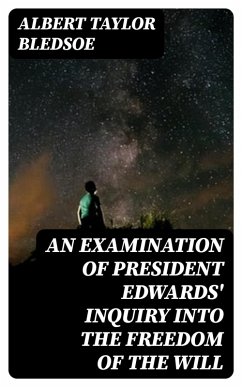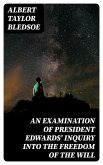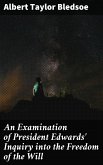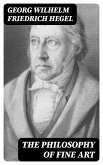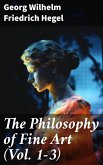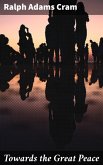In "An Examination of President Edwards' Inquiry into the Freedom of the Will," Albert Taylor Bledsoe delves into the philosophical underpinnings of free will as articulated by Jonathan Edwards. Bledsoe meticulously dissects Edwards' arguments, presenting a critical analysis that illuminates the complexities surrounding moral agency and determinism. The text is rich in rhetorical eloquence, characterized by a rigorous logical framework and a methodical approach, reflective of the mid-19th-century intellectual milieu. Bledsoe situates Edwards' work within the broader context of American philosophy and theology, engaging with contemporary debates on free will and moral responsibility, which are crucial in understanding the work's enduring significance. Bledsoe, a respected philosopher and theologian, was deeply influenced by the religious fervor and intellectual currents of his time. His experiences, particularly in the South during a period marked by intense philosophical inquiry and moral questioning, inspired him to engage critically with the foundational texts of American thought, including those of Edwards. Bledsoe's own beliefs and commitment to rational discourse guided his examination of the tensions between grace, human agency, and divine sovereignty as articulated by Edwards. This book is essential reading for scholars and students of philosophy, theology, and American intellectual history. Bledsoe's incisive critique not only enhances our understanding of Edwards' work but also invites contemporary readers to grapple with the enduring questions of free will that remain central to ethical considerations today. Whether one is a seasoned philosopher or a curious newcomer, Bledsoe's systematic approach and engaging prose make this a compelling study for anyone interested in the intersection of faith and reason.
Dieser Download kann aus rechtlichen Gründen nur mit Rechnungsadresse in A, B, BG, CY, CZ, D, DK, EW, E, FIN, F, GR, H, IRL, I, LT, L, LR, M, NL, PL, P, R, S, SLO, SK ausgeliefert werden.

